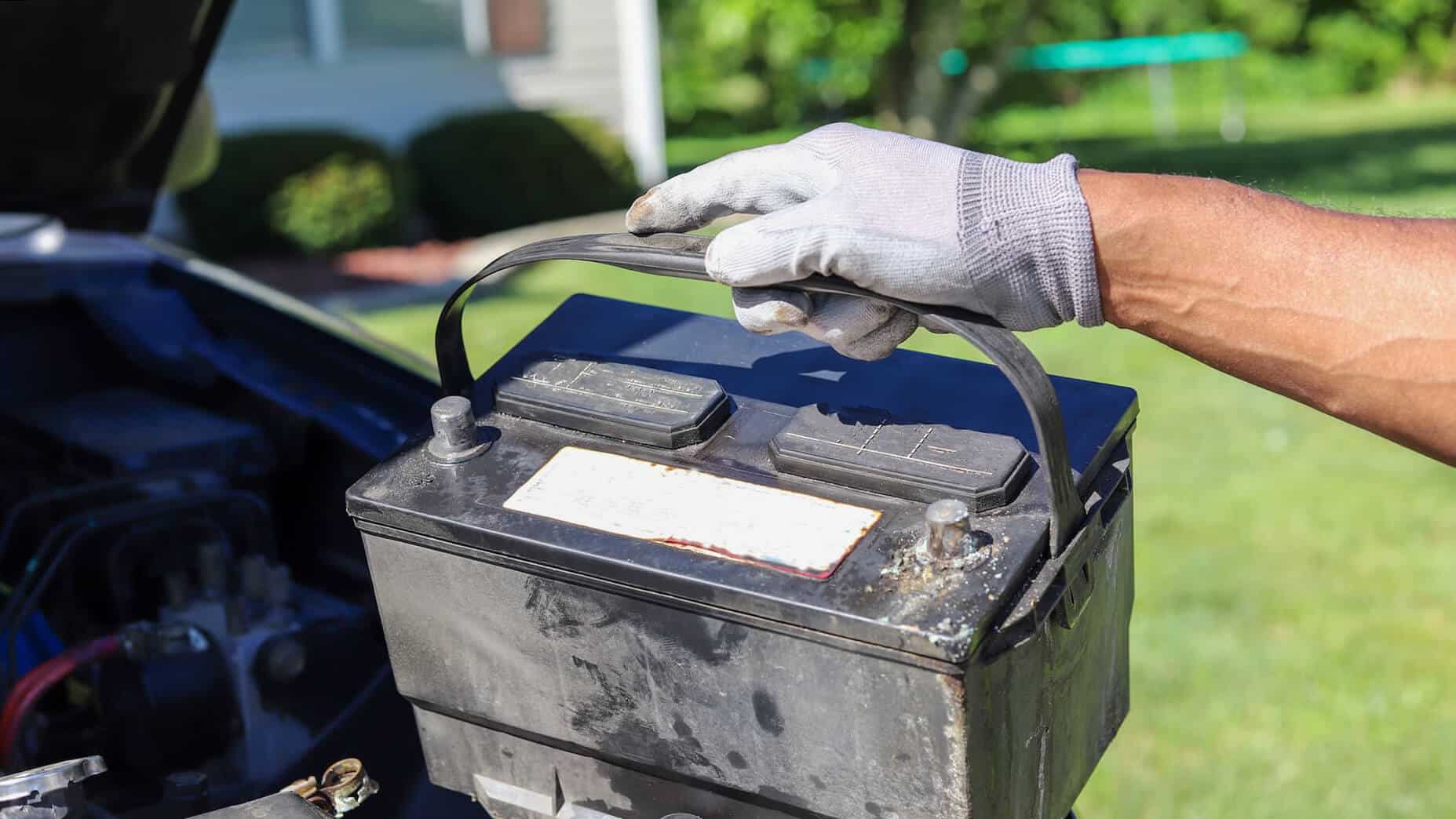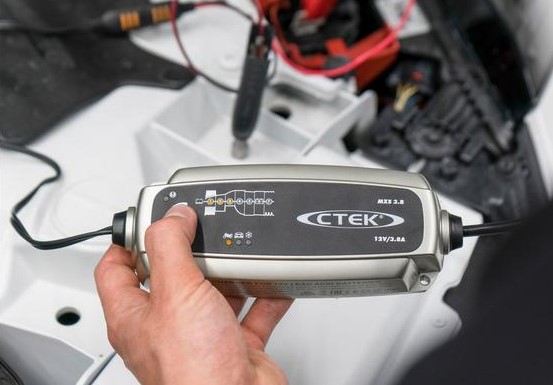Your car battery needs replacing if it struggles to start or if the headlights dim when idling. These signs indicate a weakened battery that may soon fail.
Car batteries are crucial for vehicle performance, powering everything from the ignition system to the headlights. Over time, batteries lose their ability to hold a charge, leading to various issues. Recognizing early signs of a failing battery can save you from unexpected breakdowns.
Common symptoms include difficulty starting the engine, dimming headlights, and frequent need for jump-starts. Regular maintenance and timely replacement ensure your vehicle runs smoothly. Ignoring these signs can lead to being stranded and costly repairs. Always monitor your battery’s health to maintain optimal vehicle performance.
Dimming Headlights
One of the first signs your car battery needs replacing is dim headlights. Headlights dimming can indicate a weak or failing battery. This can impact your driving safety and visibility.
Causes Of Dim Lights
Several factors can cause your headlights to dim:
- Weak Battery: A weak battery cannot supply enough power.
- Corroded Terminals: Corrosion can block the flow of electricity.
- Faulty Alternator: An alternator that isn’t working well can’t charge the battery.
- Loose Connections: Loose battery connections can cause dim lights.
Impact On Driving
Dim headlights can severely affect your driving experience:
| Impact | Description |
|---|---|
| Reduced Visibility | Dim lights make it hard to see the road. |
| Safety Hazard | Other drivers may not see your car well. |
| Increased Stress | Driving with poor lighting can be stressful. |
Ensuring your headlights are bright and clear is crucial for safe driving.

Credit: www.motorist.sg
Slow Engine Crank
One of the first signs that your car battery is failing is a slow engine crank. This means your engine struggles to start. It may take longer than usual or sound sluggish. Ignoring this sign can lead to bigger problems down the road.
Symptoms Of Slow Crank
Several symptoms indicate a slow engine crank. Recognizing these can save you from a sudden breakdown.
- Delayed Start: The engine takes longer than usual to start.
- Weak Engine Sound: The engine sounds sluggish and weak.
- Intermittent Starting: Sometimes the car starts, other times it doesn’t.
- Dim Lights: Headlights and dashboard lights appear dimmer than normal.
Risks Of Ignoring
Ignoring a slow engine crank can lead to several risks:
| Risk | Impact |
|---|---|
| Complete Battery Failure | Car won’t start at all. |
| Electrical Issues | Other car electronics may fail. |
| Stranded | You could get stuck far from help. |
| Increased Repair Costs | Ignoring the issue can lead to expensive repairs. |
Clicking Sound
A clicking sound when you try to start your car can be troubling. It often signals that your car battery might need replacing. This noise usually points to an issue with the battery or the starter motor. Let’s explore why this happens and the potential damage it can cause.
Why Clicking Happens
The clicking sound occurs when the starter motor doesn’t get enough power. This happens because the battery is weak or dying. Here are some reasons why:
- Old Battery: Batteries wear out over time and lose their charge.
- Corroded Terminals: Dirt and corrosion can block the flow of electricity.
- Faulty Connections: Loose or damaged wires can disrupt the power flow.
Potential Damage
Ignoring the clicking sound can lead to more problems. Here’s what might happen:
| Issue | Potential Damage |
|---|---|
| Starter Motor Strain | The motor works harder, leading to wear and tear. |
| Battery Drain | A weak battery can drain faster, leaving you stranded. |
| Electrical Issues | Bad connections can damage other electrical components. |
Listen for clicking sounds and take action quickly. This can save you from bigger repair bills and keep your car running smoothly.

Credit: uchanics.ca
Electrical Issues
Electrical issues can be a strong indicator that your car battery needs replacing. Your car relies heavily on its electrical system. If the battery starts to fail, you may experience various problems. Recognizing these signs early can save you from a sudden breakdown.
Common Electrical Problems
Several electrical problems may arise from a weak or dying battery. These include:
- Dim headlights
- Flickering dashboard lights
- Unresponsive radio
- Malfunctioning power windows
Dim headlights are a common sign. They may struggle to illuminate the road properly. Flickering dashboard lights can also indicate a weak battery. Unresponsive radio or malfunctioning power windows are other electrical issues to watch for.
Battery Connection
Sometimes, the problem isn’t the battery itself but its connection. A loose or corroded connection can disrupt the electrical flow.
| Issue | Description |
|---|---|
| Loose Connection | The battery terminals may be loose, affecting performance. |
| Corrosion | Corrosion on the terminals can block electrical flow. |
Check the battery terminals for any signs of corrosion. Clean them with a brush if needed. Ensure the connection is tight and secure.
Addressing these issues can help maintain your car’s electrical health. Don’t ignore the signs. A timely battery replacement can prevent more serious problems.
Swollen Battery Case
A swollen battery case is a clear sign that something is wrong with your car battery. This issue can lead to more serious problems if not addressed promptly. Understanding the reasons behind battery swelling and knowing the immediate actions to take can save you from potential hazards.
Reasons For Swelling
- Overcharging: Overcharging leads to excessive heat, causing the battery to swell.
- Extreme Temperatures: Very hot or cold weather can cause the battery case to swell.
- Internal Short Circuit: A short circuit inside the battery can produce gases that cause swelling.
- Old Age: Batteries tend to swell as they get older and lose efficiency.
Immediate Actions
If you notice a swollen battery case, take these immediate actions:
- Turn Off the Car: Stop using the vehicle immediately to prevent further damage.
- Disconnect the Battery: Carefully disconnect the battery terminals to avoid electric shocks.
- Wear Protective Gear: Use gloves and safety glasses to protect yourself from acid leaks.
- Consult a Professional: Contact a mechanic or a battery specialist for further inspection.
- Dispose of Properly: Ensure the swollen battery is disposed of at a recycling center.
Ignoring a swollen battery case can lead to serious safety hazards. Always take immediate action to ensure your safety and the proper functioning of your vehicle.
Battery Age
The age of your car battery is crucial for its performance. An older battery can cause various problems. Recognizing the signs can save you from unexpected breakdowns.
Lifespan Of A Battery
Car batteries have an average lifespan of 3 to 5 years. The lifespan depends on various factors. These include weather conditions and driving habits. Cold climates can shorten a battery’s life. Likewise, frequent short trips can also wear it out faster.
| Factor | Impact on Battery Life |
|---|---|
| Weather Conditions | Extreme temperatures reduce lifespan. |
| Driving Habits | Frequent short trips wear out the battery. |
| Maintenance | Regular checks can extend life. |
When To Replace
Knowing when to replace your battery is vital. Here are some signs:
- Slow Engine Crank: The engine cranks more slowly than usual.
- Check Engine Light: The battery warning light is on.
- Low Battery Fluid Level: Fluid levels are below the lead plates.
- Swollen Battery Case: The battery case looks swollen or bloated.
- Old Age: The battery is older than 3 years.
If you see these signs, replace your battery soon. Regular checks can help you avoid issues.
Check Engine Light
Your car’s check engine light is a warning sign. It can signal many issues, including a dying battery. Ignoring this light can lead to bigger problems. Learn how to interpret this light and what other causes might trigger it.
Interpreting The Light
The check engine light can blink or stay steady. A blinking light means an urgent issue. A steady light is less urgent but still needs attention. Both can indicate a weak battery.
Modern cars have sensors for many parts. These sensors send signals to the engine control unit (ECU). A weak battery can cause these signals to be erratic. This can trigger the check engine light.
Use a diagnostic tool to read the error codes. These codes help you identify the problem. They can tell you if the issue is battery-related.
Other Causes
The check engine light can also signal other issues. Here are some common causes:
- Loose or damaged gas cap
- Faulty oxygen sensor
- Failing spark plugs
- Malfunctioning catalytic converter
Each of these problems has its symptoms. But a weak battery can mimic some of these signs. It’s crucial to rule out battery issues first. A simple battery test can save you time and money.
| Issue | Symptoms |
|---|---|
| Weak Battery | Dim lights, slow engine start |
| Loose Gas Cap | Fuel smell, poor fuel economy |
| Faulty Oxygen Sensor | Rough idle, poor performance |
Regular maintenance helps keep your car running smoothly. Always check the battery when you see the check engine light. It could be a simple fix to a complex problem.

Credit: blog.halfords.com
Frequent Jump-starts
Have you needed to jump-start your car often recently? This could be a sign that your car battery needs replacing. Frequent jump-starts are not normal and indicate underlying issues.
Signs Of A Weak Battery
A weak battery shows several signs. Here are some common indicators:
- Slow Engine Crank: The engine takes longer to start.
- Dim Lights: Headlights and interior lights seem dimmer than usual.
- Electrical Issues: Power windows and radio function poorly.
These signs suggest that your battery is losing its charge. Recognizing these symptoms early can prevent unexpected breakdowns.
Long-term Solutions
Jump-starts are a temporary fix. To solve the issue long-term, consider these solutions:
- Replace the Battery: Get a new battery installed.
- Check Electrical System: Ensure the alternator and starter work well.
- Regular Maintenance: Schedule regular battery check-ups.
These steps can save you from frequent jump-starts. A healthy battery ensures reliable car performance.
Frequently Asked Questions
How Do I Know My Car Battery Is Dying?
Dim headlights, slow engine crank, and electrical issues are signs your car battery might be failing.
What Causes A Car Battery To Die?
Extreme temperatures, short trips, and leaving lights on can drain your car battery.
How Often Should A Car Battery Be Replaced?
Car batteries generally last 3-5 years. Regular checks help ensure optimal performance.
Why Is My Car Battery Draining Quickly?
Faulty alternators, parasitic drains, and old batteries cause rapid battery drain. Get it checked by a professional.
Can A Weak Battery Affect Car Performance?
Yes, a weak battery leads to starting issues and affects electronic components’ performance.
What Are The Signs Of A Dead Battery?
Complete power loss, no interior lights, and a non-responsive engine are signs of a dead battery.
Conclusion
Recognizing signs of a failing car battery can save you from unexpected breakdowns. Regular checks ensure your vehicle’s reliability. Don’t ignore dim headlights or slow engine starts. These are clear indicators. Replace your battery promptly to avoid inconvenience. Stay proactive for a smoother driving experience.

